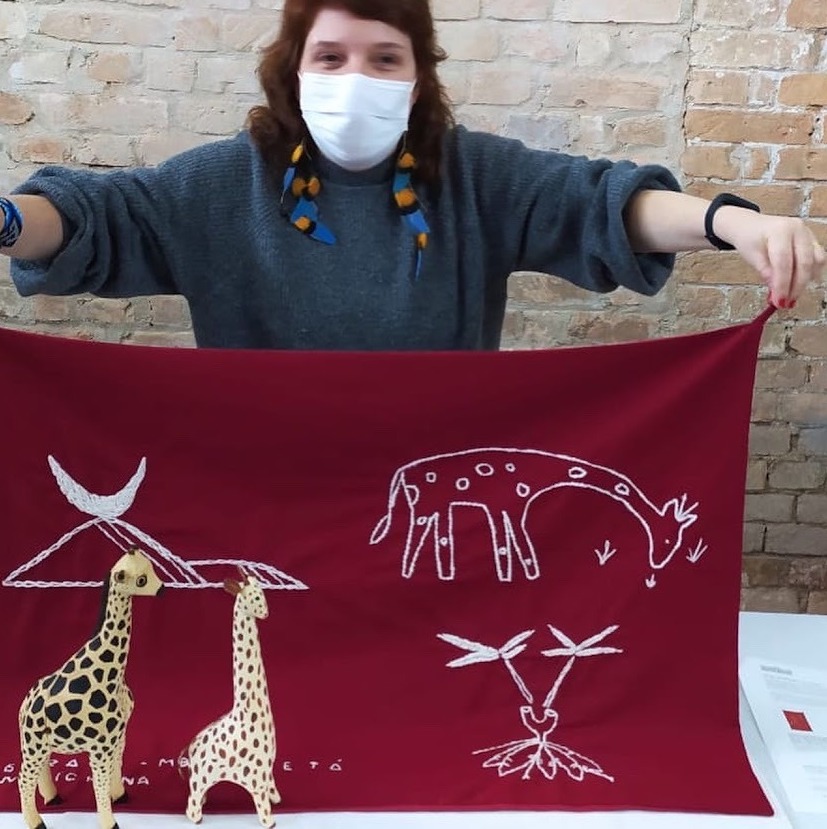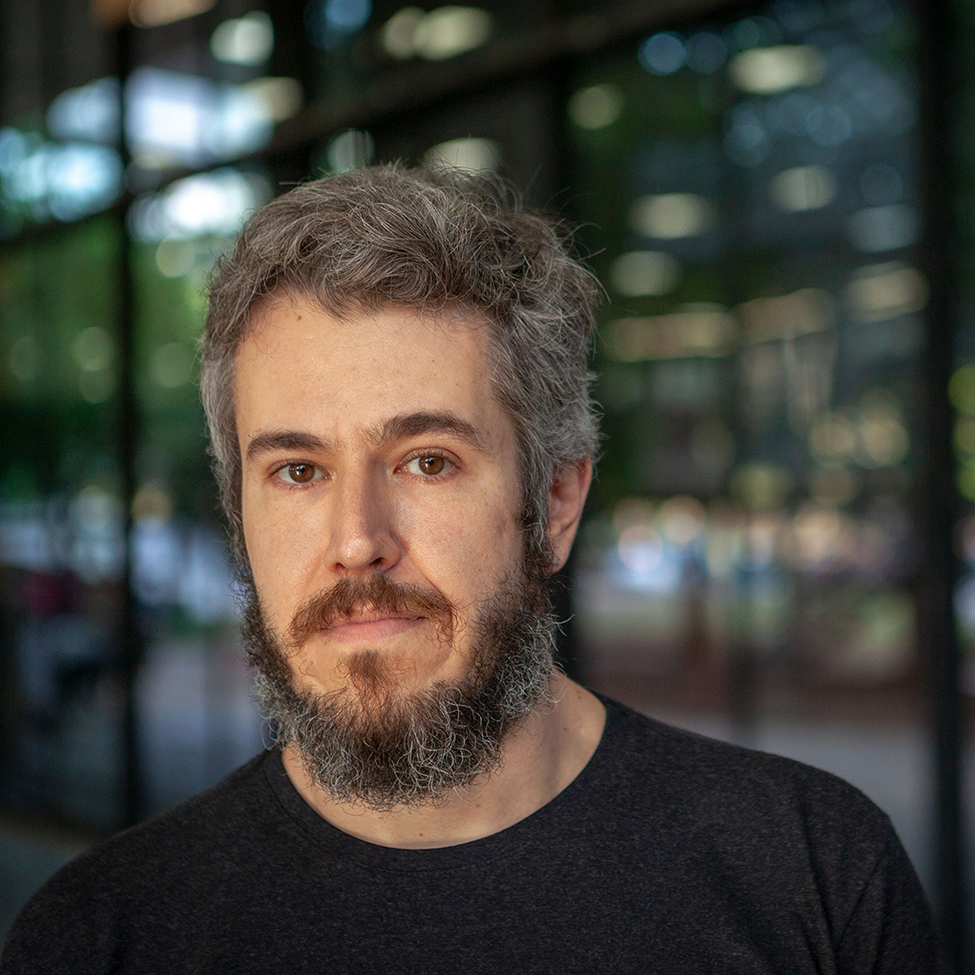
Irineu Nje'a Terena is an Indigenous artist working with ceramics and a historian from the Terena ethnic group. His homeland is the Aldeia Kopenoti, in the hinterland of São Paulo, Brazil. For more than a decade, Irineu has been educating non-indigenous people about the Terena culture in schools, universities and cultural centers, through talks, workshops and the performing arts. The Terena are known for their traditional ceramics and Irineu is both developing his own language as a sculptor who uses ceramics and promoting the rememoration of the traditional practices in his territory.
According to the 2010 Brazilian Census, most of the 28,845 Terena individuals live far from Irineu and his community – in the Midwest of Brazil, in the State of Mato Grosso do Sul, more than 1,200 kilometers from Aldeia Kopenoti, located in the State of São Paul. In the 1930s, as part of the territorial policy of the Brazilian State for the indigenous population, coordinated by Marechal Rondon, Irineu's descendants moved from the Center to the Southeast of Brazil. The intention was to strengthen the presence of indigenous people in the interior of the state of São Paulo, an area of interest to non-indigenous farmers. The 1,068 Terena individuals who live there now have a relationship of affection from a distance with their relatives in the Midwest (Carvalho, 1979; Castelnau, 1949; Diniz, 1978). This displacement of the population, away from their matrix communities is important information to understand the artist's interest in creating collective and contextualized methodologies to remember and transmit the Terena people's cosmotechnologies and knowledge. The research conducted by Irineu is a way for him and his community to deal with the idea of Decay as part of the colonization process, and to recreate their memories and traditions, their sense of ethnic belonging and their communication with their distant relatives.
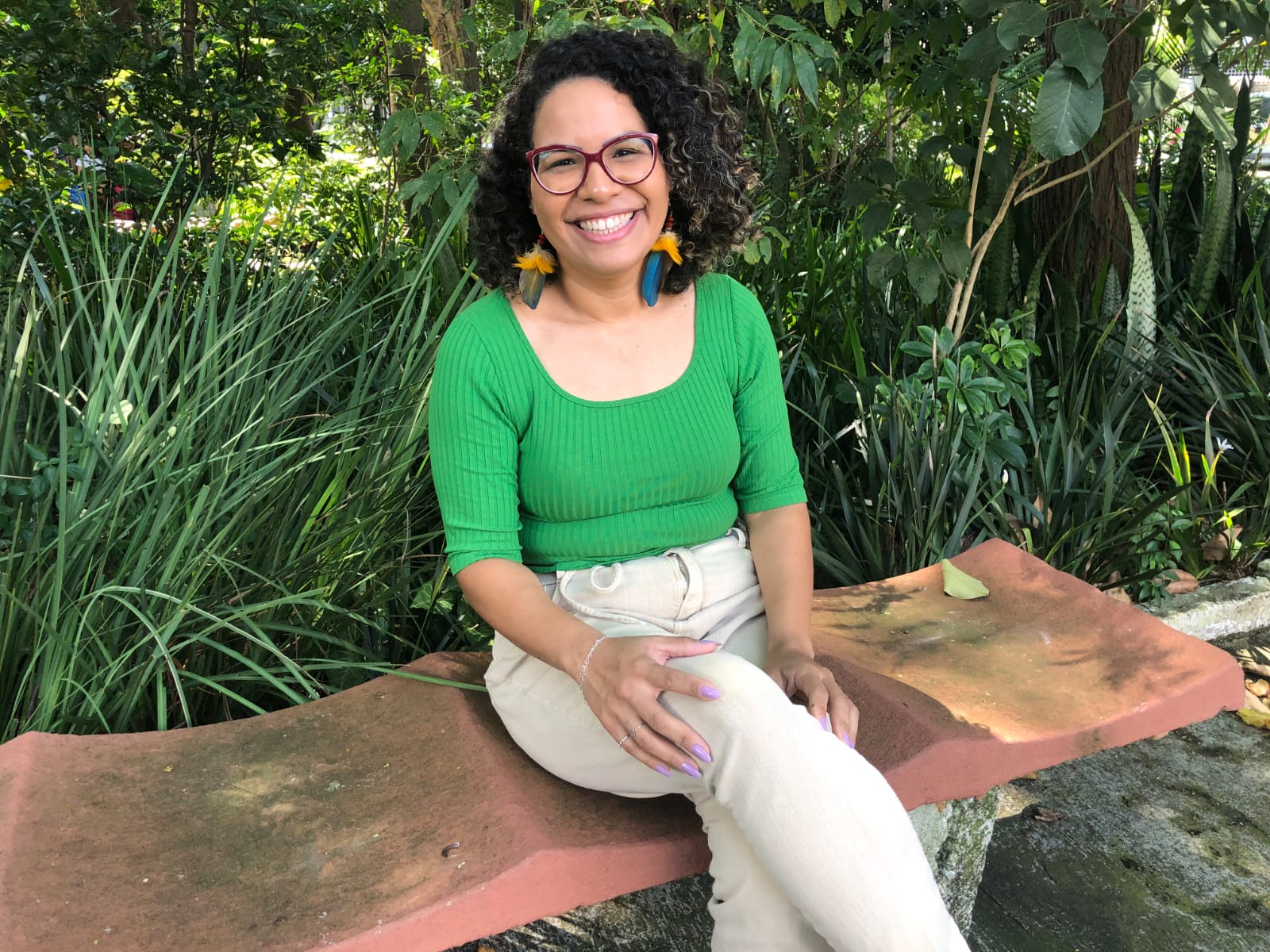
Helena Indiara Ferreira Corezomaé
Helena Corezomaé is from the Balatiponé people, popularly known as Umutina, from Barra do Bugres, Mato Grosso, Brazil. With a degree in Journalism and a master's degree in Social Anthropology from the Federal University of Mato Grosso (UFMT), she works as a writer, reporter, editor, advisor and photographer. Helena's life story is marked by activism in favor of indigenous peoples and their struggle, mainly, for land.
In 2023, the Pinacoteca do Estado de São Paulo began a project to create annotated captions for the indigenous works in the museum and to write mini-biographies of the artists, as part of the Decay without mourning research project. Helena was invited to coordinate the team with full autonomy to select five indigenous writers and researchers. The team chosen by Helena Corezomaé was made up of indigenous scholars, who were selected for their connection with the artists and their peoples, and also with the themes and questions raised by their work. Sarlene Macuxi, Barbara Matias Kariri, Isaac Amajunepá, Robson Delgado and Idjahure Kadiwel wrote interpretative labels in conversation with each artist, who shared with the indigenous researchers the stories, representations, meanings and impacts of their works. They also followed the entire writing process, up to the final phase and, finally, approved the texts. The translation was also done by Indigenous professionals: harles Macuxi, Lindia Wapichana, Tony Brito, Idiane kariri Xocó, Isaías Sales (Ibã), Kaya Agari, Yermollay Caripoune, Tuinaki Karajá, Anderson Seribi Tukano, Juliana Kerexu and André Baniwa..

Glicéria Tupinambá (Serra do Padeiro, Tupinambá de Olivença Indigenous Land, Bahia, Brazil), also known as Célia Tupinambá, is a teacher, anthropologist, activist, researcher, filmmaker, and leader in her community at Serra do Padeiro, in the Tupinambá de Olivença Indigenous Land, in southern Bahia, Brazil. She completed her Intercultural Indigenous Degree at the Federal Institute of Education, Science and Technology of Bahia (IFBA). Glicéria became internationally known for her research on the Tupinambá mantle, for her work on the documentary "Voz Das Mulheres Indígenas" (2015) and for her participation in the exhibition Ka’a puera: we are walking birds, at the Hãhãwpuá Pavillion at the 60 Venice Biennale.
Tupinambá clubs (bordunas) are significant artifacts of Tupinambá culture. Both ritual and functional objects, some Tupinambá bordunas are known to be kept in museums in Europe. There is no record of any of them in Brazilian collections. For the Tupinambá people, knowing and having access to the clubs (bordunas) is fundamental to their memory, a way of reconnecting with their identity and history. Glicéria has been investigating objects produced by her people, as well as images and accounts of them, as a way to collectively remember rituals and political strategies of her people, who were in the forefront of the resistance to the colonial invaders. In addition to criticizing colonization, her aim is to collectively recall knowledge and techniques that were put to sleep by the colonization process, and by western conceptions of preservation and collecting, which are perceived as devices causing decay of the agency of material culture and the cultural processes they belong to. To support her in the task of finding and remembering about her people's clubs, Decay project works together with Glicéria to help her locate, identify and access the Tupinambá clubs in European museums and share the knowledge of these objects and their cultural life with her community, through workshops and educational material.
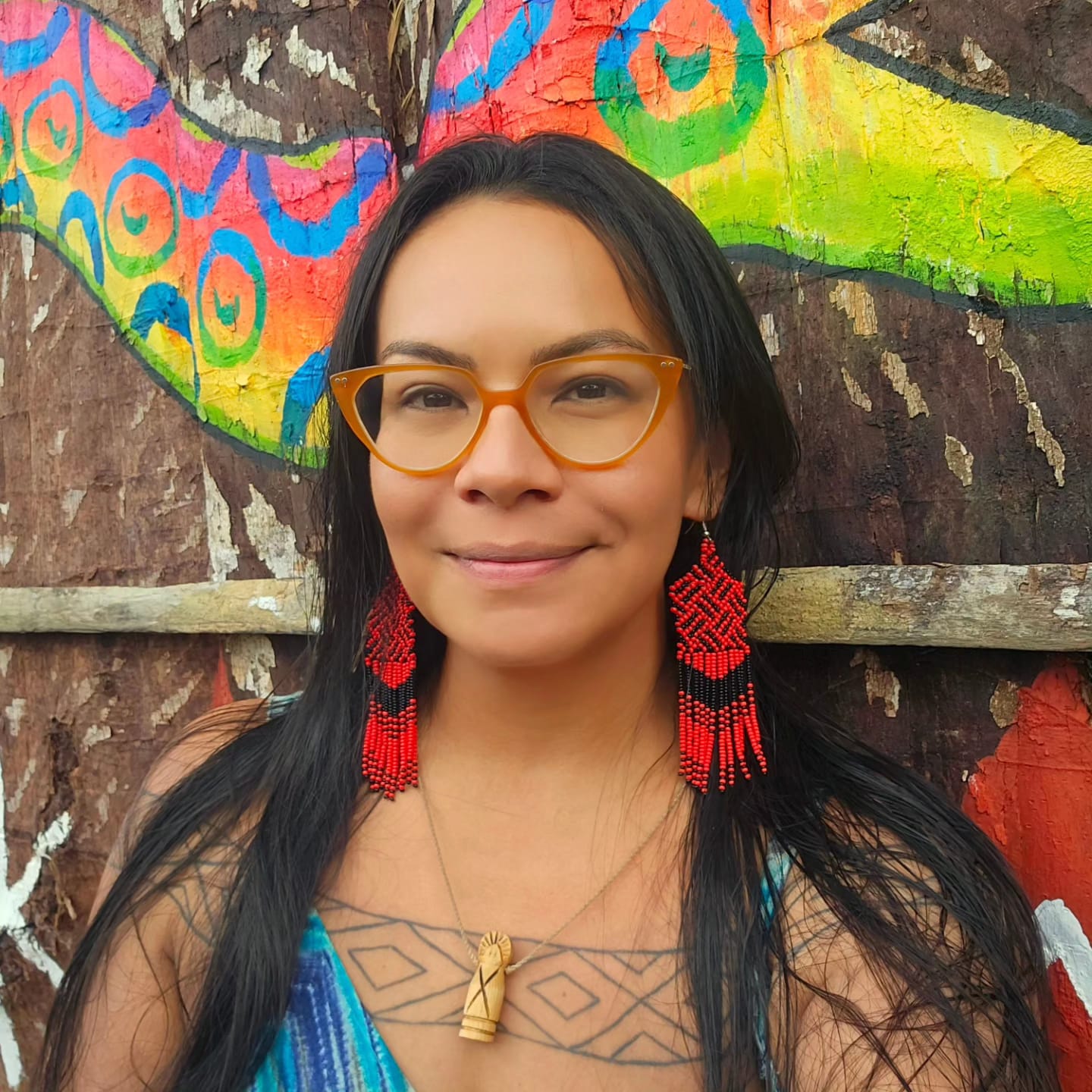
Daiara Hori Figueroa Sampaio - Duhigô, of the Tukano - Yé'pá Mahsã indigenous people, belongs to the Eremiri Hãusiro Parameri clan of the Upper Rio Negro in the Brazilian Amazon. Born in São Paulo, she is an artist, curator, teacher and activist. She has a degree in Visual Arts and a Master's in Human Rights from the University of Brasília - UnB; she researches indigenous peoples' right to memory and truth. She was the coordinator of Rádio Yandê from 2015 to 2021, and a founding member of the Ayahuasca Indigenous Conference. She participated in the 34th São Paulo Biennial, and is the winner of the PIPA Online Award 2021, and the Prince Claus Seed Awards in 2022. Her works are in the collections of the Pinacoteca de São Paulo; Museu de Arte de São Paulo - MASP; Memorial dos Povos Indígenas - DF; Museo delle Civilità, Rome, Italy; Mauritshuis Museum - The Hague, Netherlands. She is the curator of the exhibition Nhe'ê Porã: memory and transformation, on indigenous languages for the Portuguese Language Museum, SP, now touring in different museums across Brazil and South America. She is a member of the National Council of Culture CNPC/MINC mandate 2022-2025 representing Indigenous Peoples.She studies the culture, history and spirituality of her people with her family.
As part of Decay's initiatives of discussing the absence of indigenous peoples in Museums and the Academia, Daiara Tukano was invited to lecture a 10 classes graduate course on Museums, Art History and Indigenous Peoples to the Graduate Program in Museology of the University of São Paulo, hosted at MAC USP. As an invited professor, she developed a series of discussions around the relationship between art museums, art history and indigenous peoples in Brazil. Starting from a discussion of the role of art in the construction of stereotypes, in the production and reproduction of structural racism in Brazilian society, and taking as a case study the representation of indigenous people in art produced in Brazil and presented in art museums, the course also debates the forms of resistance and agency that indigenous artists have developed in order to construct representations of themselves and their cultures. She approaches decoding Decay's in art history and museum's practices as a way of addressing whiteness, structural racism and the right of justice, memory and truth, as a reparation process for indigenous peoples.
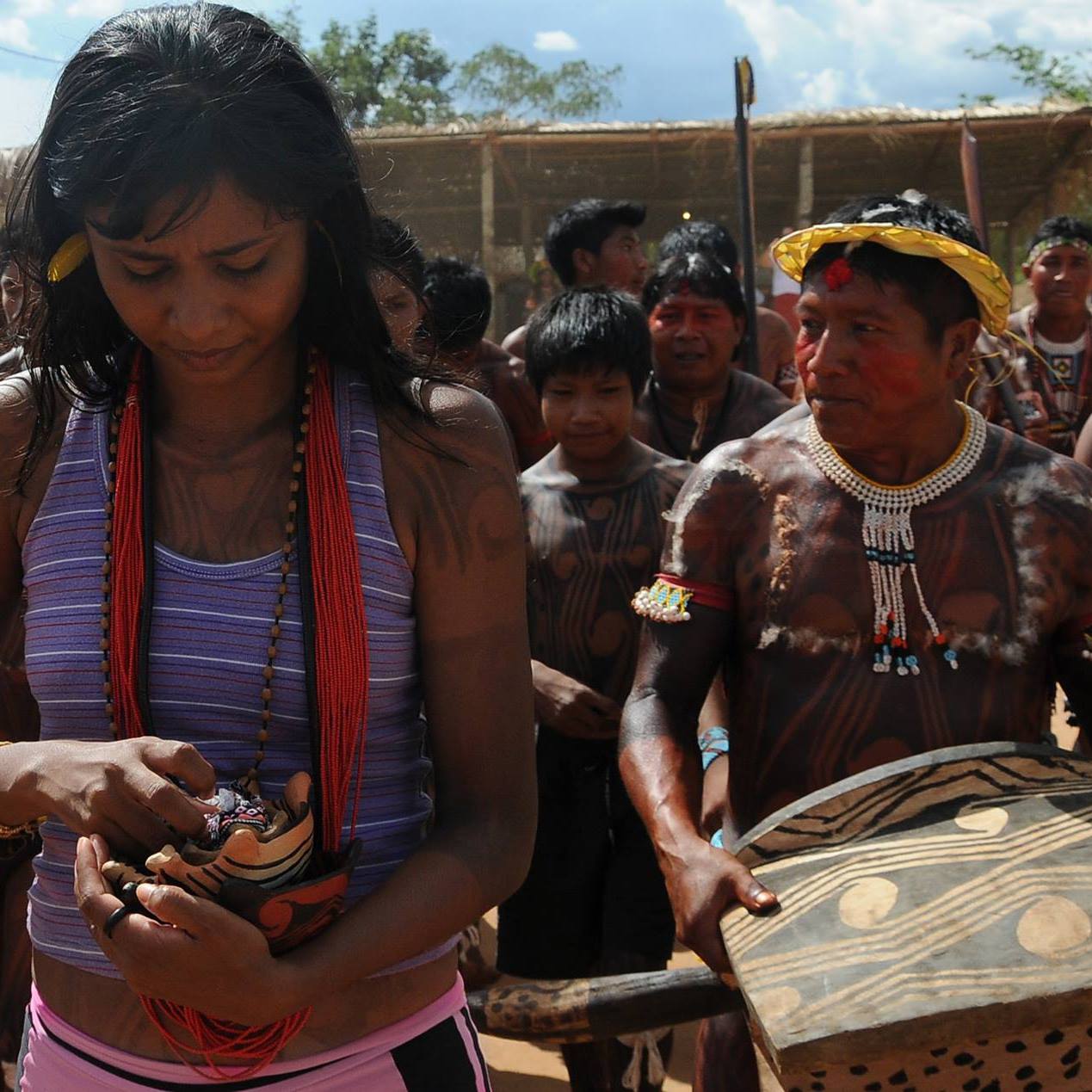
Researcher of the Decay project from 2022 to 2023.
Naine Terena holds a Master in Arts, PhD in Education, and graduated with a degree in Social Communication. A woman of the Terena indigenous people, she created the Oracle Communication, Education and Culture, in 2012 which promotes the participation of minorities in the socio-cultural context in Brazil. She is the organizer of the book-collection of indigenous writers Tempos (editora Sustentável, 2021) and of scientific journals such as Abatirá: Educação Escolar Indígena no Século XXI: Desafios, especificidades e perspectivas (v. 1, n. 2, 2020); and Revista Urdimento: Corpo e(n)cena e (des)educação - As artes da cena dos e com os povos indígenas (v. 1 n. 43, 2022). She was one of five finalists for the Jane Lombard Prize for Art and Social Justice, offered in 2019 by the Vera List Center for Art and Politics, New York (USA). She is recognized as Master of Culture of Mato Grosso (Brazil - 2020/2021). She was also curator of the exhibition Véxoa - Nós sabemos at the Pinacoteca of State of São Paulo, Festival Desenho Vivo - Circuito Urbano de Arte (CURA) and member of the Judging Committee of the 13th International Biennial of Architecture of São Paulo. She teaches in the specialization course in Cultural management - Expanding repertoires, at Instituto Itaú Cultural and at the Indigenous Intercultural Master's at the University of the State of Mato Grosso. Follow her on social media at Facebook and Instagram. As a Post-Doctoral Researcher Fellow of the Aldear! incubator in the Decay project, Naine Terena is responsible for mediating dialogues with partner indigenous groups, and to develop propositions on the issue of the collections of cultural institutions, their forms of access, preservation and dissemination. She is especially interested in thinking about the issue of decadence / decay of systems of thought and the protection of indigenous heritage from the insurgency movement of the counter-narratives of native peoples in Brazil.





